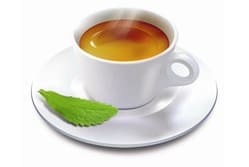The skinny on sugar-laden beverages.
YOU’VE heard the saying “you are what you eat”. What about “you are what you drink”?
What you drink can be as harmful to the body as what you eat, and there isn’t a shadow of a doubt that consuming too many sugar-laden beverages can significantly contribute to abdominal obesity, therefore increasing your chances of developing health conditions such as type 2 diabetes, high blood pressure and heart disease.
Over the past 20 years, the consumption and availability of sugar-laden beverages, such as sodas (sugar carbonated drinks), fruit drinks, energy (sports) drinks and 3-in-1 instant hot beverages have risen significantly.
Most consumers are considerably misjudging how much sugar supposedly “healthy option drinks” contain, researchers from the University Of Glasgow, Scotland, revealed in a new report.
The investigators asked 2,005 individuals across the country to estimate how much sugar some popular drinks contained. They found that, in general, people have a tendency to slightly overestimate the sugar content of sodas (fizzy drinks), while seriously underestimating levels in milkshakes, smoothies, energy drinks and several fruit juices.
Most health guidelines encourage people to consume drinks such as orange and apple juice in order to have a healthy balanced diet. But the findings of two teams of British researchers turn that advice on its head – concluding that fruit juices should be avoided.
The studies found that even freshly squeezed fruit juices can contain as much as five teaspoons of sugar per glass because the squeezing process concentrates their sweetness. This is around two-thirds the amount found in a can of soda, and can contribute to obesity, as well as affect blood sugar levels and the body’s natural metabolism, the studies found.
Do you know that your regular three-in-one hot beverages have an average of three to four teaspoons of sugar in each serving? By taking two or more cups of these beverages daily, you would have exceeded your daily sugar quota recommended by the American Heart Association, which states that one should have no more than six teaspoons a day of added sugar for women, and nine teaspoons for men.

For many people struggling with their weight, reducing their intake of such drinks, and replacing them with water or sugar-free alternatives such as stevia sweetened three-in-one sugar-free beverages would be a sensible first target to help them lessen their calorie intake.
Stevia, also known as sweet leaf or Stevia rebaudiana, originates from Brazil and Paraguay, and is about 300 times sweeter than sugar, but contains no calories. Stevia extract is made from the sweetest part of the stevia leaf, which is called Rebiana-A (Reb-A).
Stevia does not raise blood sugar levels, and is thus, an ideal choice for pre-diabetics, diabetics, and those concerned about health.
Stevia has been found to be safe. In December 2008, the US Food and Drug Administration (FDA) officially granted GRAS (generally recognised as safe) status to high purity Reb-A. Japan on the other hand has approved stevia as a sweetener since the 1970’s.
When it comes to sweetness, no sweeteners, whether natural or artificial, can ever compare to sugar as sugar is the “gold standard” – we are used to taking sugar since birth. However our taste buds can be retrained over time to enjoy stevia’s natural sweetness. The taste is easily acquired. It is still an excellent substitute for cane sugar.
Reference:
Agency Response Letter GRAS Notice No. GRN 000253. CFSAN/Office of Food Additive Safety. December 17, 2008. Accessed July 25, 2011.

